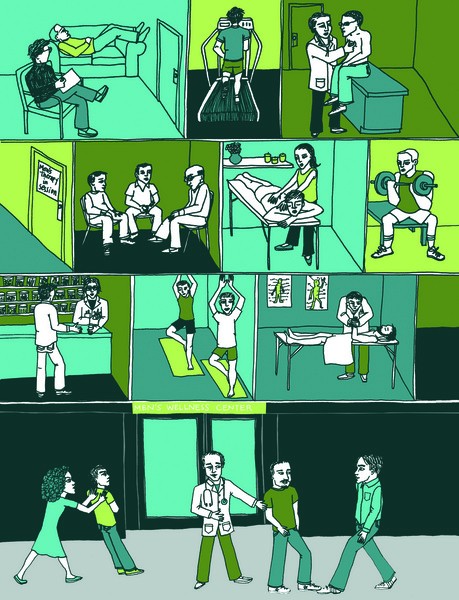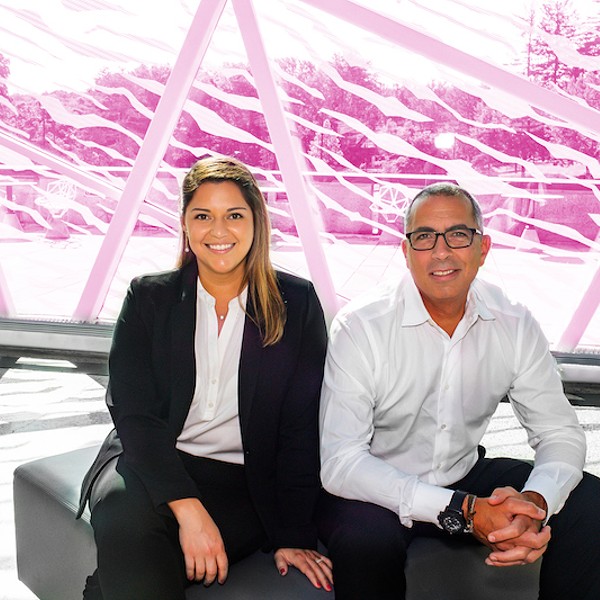A friend of mine says she has to practically force her husband to accept her massages for his recurring headaches. Another friend found acupuncture quite helpful for her painful shoulder but couldn’t get her boyfriend to try it for a strained back muscle. Men admit, and their doctors concur, that they tend to deflect awareness and action when it comes to physical problems. A fear about getting bad news may be to blame, or lack of time, or plain old stubbornness, may keep them from the doctor’s office. But the societal message that he should be self-sufficient and miraculously durable is especially effective at numbing a man’s response to his own physical issues.
Dr. Sam Schikowitz, a naturopathic doctor and acupuncturist in New Paltz, says he’s noticed that the biggest insult for men is to feel defeated, whereas the biggest problem for women is feeling isolated. “So for men to go and get health care often feels like an admission of weakness—that they can’t handle it themselves—where for women, getting healthcare is a nonisolation behavior.” Another deterrent, says Schikowitz, is the tendency for a doctor to tell people what to do, with little room for discussion. “Historically, physicians have been so authoritarian that it feels to a man like a reprimand, like an authority figure imposing a power trip.”
Fortunately, a shift is afoot to empower men to view caring for their health as a powerful action. Scott Williams is vice president for professional relations and public policy at the Men’s Health Network (MHN), a national organization founded in 1992 by healthcare professionals to help men take ownership of their health. “We hear men say, ‘I don’t want to know what’s wrong,’” he says. “But we’ve seen that a motivational and empowerment message works to get men to take responsibility for their health. We encourage men to be a role model and mentor by making annual health visits, and moving past the macho man attitude that you’ve always got to suck it up. What’s macho is taking care of yourself and being there in the long haul to take care of the family. We say that we are building healthy families one man at a time.”
The Men’s Health Network
The Men’s Health Network discovered there were no widespread educational materials for men’s health, no national movements or programs, no advocacy, and no office of men’s health within the US Department of Health and Human Services as there is for women and minorities. “We found that we could not address policy and advocacy without reaching out to where men are,” Williams explains. “So we go out to employers, sports franchises, free clinics—reaching men and their families where they live, work, play, and pray.” With about 50 corporate employers and numerous other partners, MHN is making tremendous headway in improving the lives of men and those around them. The MHN website is packed with information, links, and reminders of events you might not have heard of, like Men’s Health Awareness Week in June each year, incorporating Father’s Day, and National Men’s Health Month (June).
Among the MHN’s free materials available online (www.blueprintformenshealth.com), is the Blueprint for Men’s Health, a comprehensive guide to living a healthy lifestyle, and Your Head, An Owner’s Manual, covering mental health issues. Both publications enlighten men and help them know what to ask of health providers. MHN also links men with free or low-cost health clinics (www.menshealthmonth.org) and prescription assistance programs, such as Partnership for Prescription Assistance (www.pparx.org) and Together Rx (www.togetherrxaccess.com). “There is really some fantastic help that we want to make people aware of,” says Williams.
Clearing the Acceptance Hurdle
Health information and advocacy won’t go far unless men notice they need it. Accepting that something about yourself is not the way you want it—whether physical, emotional, psychological, or other—is a hurdle that trips up many men. Dr. Kenneth Bock, an author and holistic physician at Rhinebeck Health Center, emphasizes the importance of acceptance as the vital first step toward greater health and happiness. “Men tend to judge their success compared to others, but they need to accept where they are from their own point of view. Acceptance is saying, ‘This is where I am in life, and this is what I really feel.’ It’s not easy. But on a deep level, that’s where healing starts. And it’s my job as a healer to figure out where somebody is, and to accept that without my own agenda, and then take them on a dance back to health—whether it starts at a waltz, or a tango, or a boogie. You’re not going to have someone who’s only ready for a waltz do a quick Latin dance.” (The last chapter in Bock’s first book, The Road to Immunity, describes this more fully.)

















